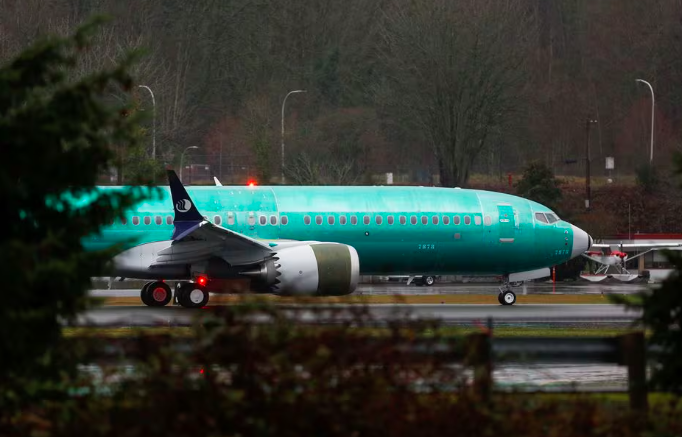Boeing’s recent crisis, triggered by a mid-air jet panel blowout on an Alaska Airlines flight, has sent ripples through its extensive supply chain, impacting numerous suppliers, including small and medium-sized businesses. The incident led U.S. regulators, specifically the Federal Aviation Administration (FAA), to impose restrictions on Boeing’s production rates, complicating the plans of various suppliers who were gearing up for increased production to meet Boeing’s ambitions for its popular 737 jets. The fallout from this setback raises concerns about the financial stability and continued operations of some of Boeing’s most vulnerable suppliers.
Among these suppliers is Hobart Machined Products, a family-owned business that has been providing metal components for aircraft to Boeing since 1978. The company had plans to double its workforce to align with Boeing’s production goals, but the recent FAA restrictions have thrown those plans into uncertainty. Hobart, like other suppliers, faces financial strain and potential challenges in meeting delivery schedules due to the unexpected production limitations imposed on Boeing.
The FAA’s decision to cap Boeing’s production rates comes in the wake of the mid-air incident, where investigators are working to determine the cause of the panel blowout. While Boeing is allowed to continue producing its 737 MAX jets under the restrictions, the uncertainty surrounding the duration of these limitations adds complexity to the supply chain dynamics. The FAA’s order requires Boeing to address quality-control issues uncovered during the investigation before any production rate increases can occur, leaving suppliers in limbo.
For many suppliers, this setback compounds existing challenges resulting from the pandemic-induced slump in demand and the previous 20-month grounding of Boeing’s 737 MAX 8. The production cap introduces another layer of uncertainty, affecting suppliers who had hired additional employees, invested in materials, and ramped up production rates in anticipation of future orders. The inventory build-up caused by the production limitations now poses a cash flow challenge for these suppliers, potentially leading to financial strain.
The smallest suppliers, in particular, are feeling the impact, as they had invested in working capital for announced production increases that may not materialize. The lack of clarity on the duration of the production cap raises concerns about the ability of these businesses to sustain their operations and meet financial obligations. Some suppliers, such as Spirit AeroSystems, which is already facing financial pressures, heavily depend on the MAX program, making them vulnerable to the ongoing challenges faced by Boeing.
The uncertainty surrounding Boeing’s production rates also affects trust within the supply base. Over the years, suppliers have faced challenges in trusting Boeing’s rate announcements, and the recent restrictions further erode that trust. The smallest suppliers, who may not have the financial resilience of larger entities, are particularly at risk of closure if Boeing’s problems persist. The overall outlook for Boeing’s supply chain, already struggling to ramp up, is now clouded by the negative ripple effects of the FAA’s production limitations. The fate of these suppliers hangs in the balance as they navigate through the uncertainty created by Boeing’s latest crisis.

